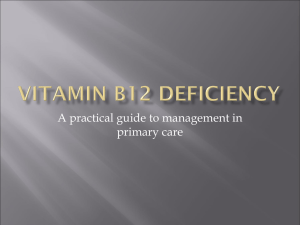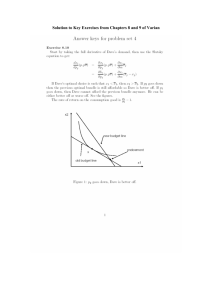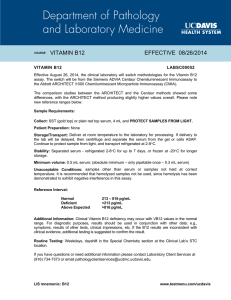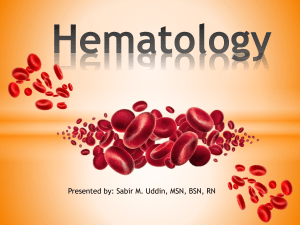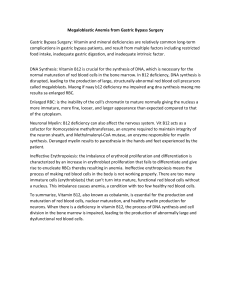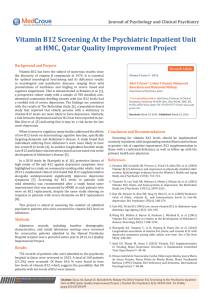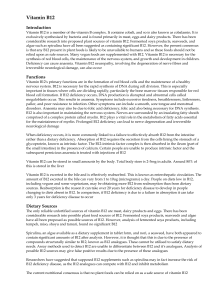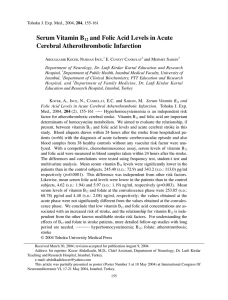Vitamin B12 Deficiency Sheena Aitken & Kristin Wingenbach
advertisement
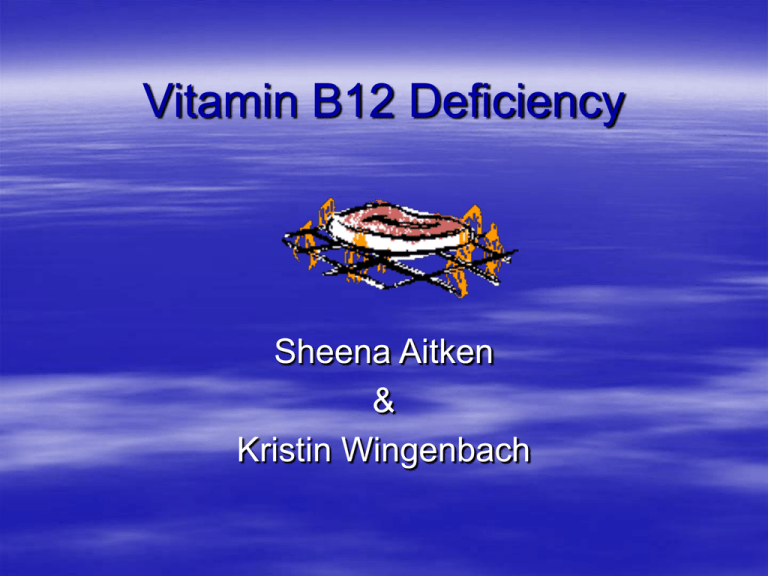
Vitamin B12 Deficiency Sheena Aitken & Kristin Wingenbach Vitamin B12 is… Also known as cobalamin Related to blood deficiency diseases What does it do? Manufactures red blood cells (RBC) Aids in tissue growth Allows body to use certain nutrients Facilitates numerous chemical reactions Human body normally contains 5000-10 000µg vitamin B12 A healthy person needs 3-5µg per day Which Foods are rich in B12? Animal products (meat, fish, poultry) Not usually denatured by cooking Great sources: liver, kidney Who’s at risk? Strict vegetarians (who eat NO animal products) and their infants Certain elderly people (B12 uptake ability decreases with age) High Risk Diets… vegetarian Some nutrients only occur in animal products Major concern is that B12 comes from bacteria (which is only found in meat products) Restricting diet makes it difficult to get all nutrients Vegetarians may resort to non-complete nutrient sources Other Causes Low intestinal B12 uptake Low intrinsic factor in the stomach Deficiency of HCl in gastric juices Laxatives Low uptake in CNS Lack of calcium Consequences of Deficiency: a variety of conditions may occur: – anemia – Fatigue – Nerve damaged – Smooth tongue – Sensitive skin – Loss of memory, exhaustion, loss of muscle strength… Folic Acid Can mask B12 deficiency B12 and Sleep Can help those with sleep disorders Releases Melatonin (sleep hormone) Works in presence of sunlight and is beneficial to jetlag Treatments Oral supplements – low success rate Intramuscularly proven more successful Active form is most successful Must be supplied with folic acid Fish should be emphasized in diet 6 months → one year to recover Questions
